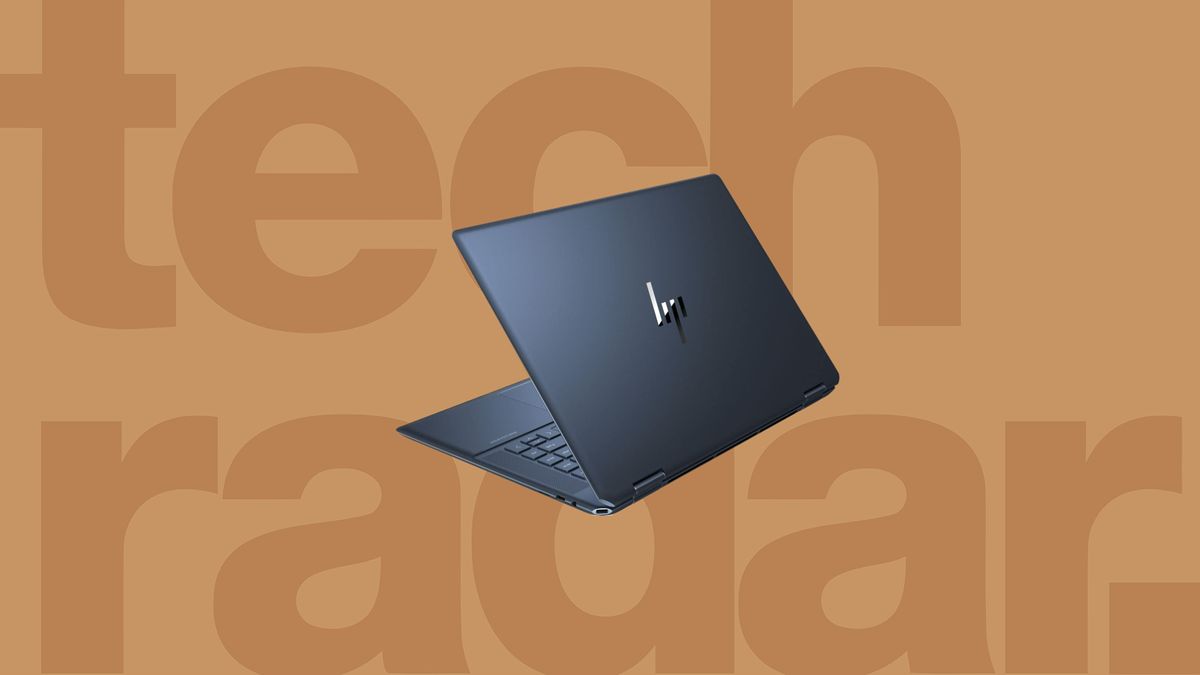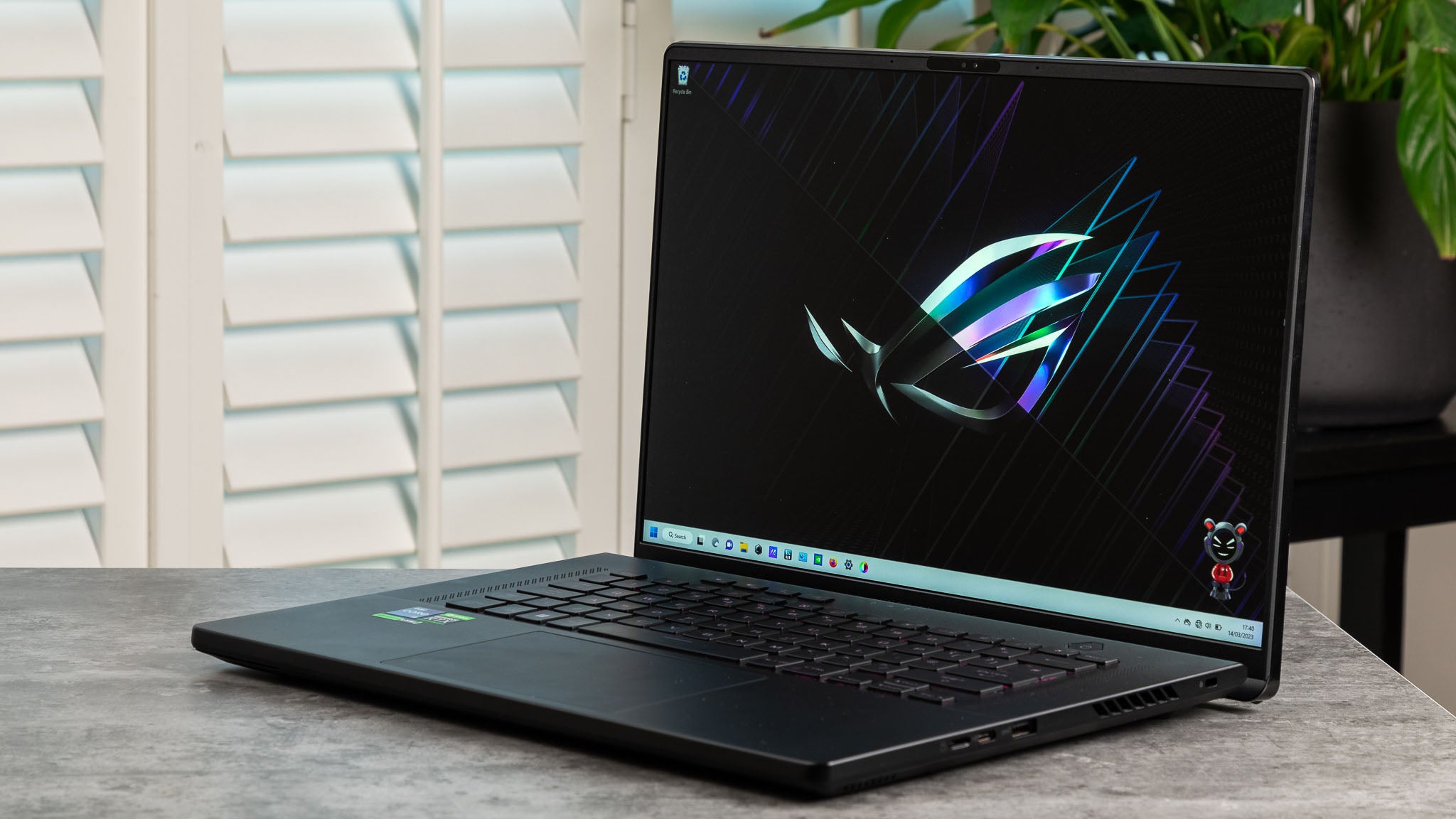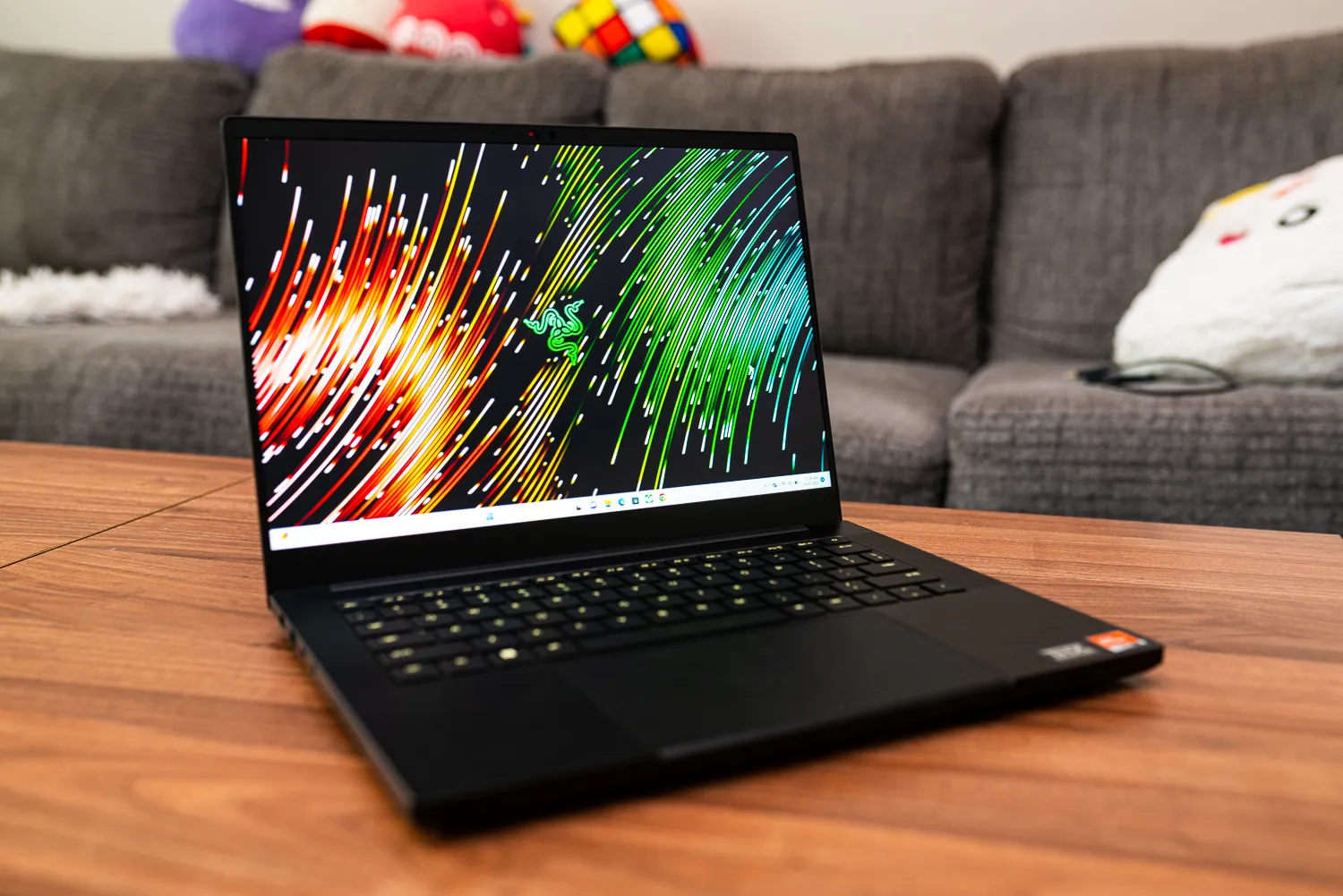Introduction
Welcome to the exciting world of gaming laptops! If you’re an avid gamer or someone looking to dive into the gaming world, you’ve come to the right place. When it comes to gaming, one of the most crucial components to consider is the processor speed of a laptop. The processor speed plays a vital role in determining the overall performance and gaming experience. In this article, we will explore the importance of processor speed for gaming, factors to consider when choosing a gaming laptop, and the minimum and recommended processor speeds for seamless gaming enjoyment.
The processor speed refers to the clock speed or the frequency at which the central processing unit (CPU) executes instructions. It is measured in gigahertz (GHz) and determines how fast a processor can perform tasks. In simpler terms, the higher the processor speed, the faster and smoother your gaming experience will be. A faster processor speed ensures quick data processing, rendering of high-resolution graphics, and seamless multitasking capabilities.
When it comes to gaming, speed is everything. The processor speed significantly impacts the frame rate, load times, and overall responsiveness of your gaming laptop. A fast processor ensures minimal lags, smooth gameplay, and enhanced visuals, allowing you to fully immerse yourself in the gaming world.
However, it’s important to note that processor speed is just one aspect to consider when choosing a gaming laptop. Several other factors, such as graphics card, RAM, storage, and cooling system, also play a crucial role. The synergy among these components determines the overall gaming performance.
In the next section, we will delve deeper into the importance of processor speed for gaming and how it interacts with other components. We will also explore the minimum and recommended processor speeds to ensure a seamless gaming experience. So, let’s buckle up and embark on this thrilling journey of finding the ideal processor speed for your gaming laptop!
What is Processor Speed?
Before we delve into the details of processor speed for gaming laptops, let’s understand what processor speed actually means. The processor speed, also known as clock speed, is the measure of how quickly a central processing unit (CPU) can execute instructions. It is measured in gigahertz (GHz) and indicates the number of cycles the CPU can complete in one second.
A higher processor speed means that the CPU can complete more cycles in a given time frame, resulting in faster and more efficient performance. Think of it as the speed at which the brain of your laptop can process information and perform calculations.
Modern processors have multiple cores, which means they can execute multiple instructions simultaneously. Each core has its own clock speed, but the overall speed of the processor is generally calculated as the sum of these speeds. So, a quad-core processor with a clock speed of 2.5 GHz per core would have an overall processor speed of 10 GHz.
It’s important to note that processor speed is not the sole determinant of a processor’s performance. Other factors such as architecture, cache size, and efficiency also play significant roles. However, processor speed remains a key factor that directly impacts the overall speed and responsiveness of your laptop.
Now that we have a basic understanding of processor speed, let’s explore why it is crucial for gaming laptops and how it can enhance your gaming experience.
The Importance of Processor Speed for Gaming
When it comes to gaming, the processor speed of your laptop is of vital importance. It directly influences the overall performance, speed, and responsiveness of your gaming experience. Here are a few reasons why processor speed is crucial for gaming laptops:
- Smooth gameplay: Gaming requires your laptop to process a vast amount of data, including graphics, physics calculations, and AI algorithms. A high processor speed ensures that your laptop can handle these complex tasks quickly and efficiently, resulting in smooth gameplay without any noticeable lag or stuttering.
- Quick load times: In fast-paced games, every second counts. A faster processor speed allows the game to load quickly, reducing the waiting time before you can jump into the action. Additionally, it ensures fast level transitions, minimizing interruptions and keeping you immersed in the game.
- High frame rates: Frame rate is the number of individual frames displayed per second in a game. Higher frame rates result in smoother and more realistic motion. A powerful processor can handle the complex calculations required to generate these frames quickly, allowing for higher frame rates and a visually stunning gaming experience.
- Multi-tasking capabilities: Gaming often involves running multiple applications simultaneously, such as game launchers, voice chat software, and web browsers. A faster processor speed enables seamless multitasking, ensuring that your gaming performance doesn’t suffer when you have multiple applications running in the background.
- Efficient game physics: Many modern games rely on advanced physics engines to simulate realistic interactions between objects. These calculations, such as gravity, collision detection, and particle effects, heavily rely on the processor’s capabilities. A faster processor speed enables smoother and more accurate physics simulations, enhancing the realism and immersion of the game.
It’s important to note that while processor speed is a crucial aspect of gaming performance, it should be considered in conjunction with other components, such as the graphics card, RAM, and storage. These components work together to deliver optimal gaming performance and ensure a seamless gaming experience without any bottlenecks.
Now that we understand the importance of processor speed for gaming, let’s explore the factors to consider when choosing the right processor speed for your gaming laptop.
Factors to Consider
Choosing the ideal processor speed for your gaming laptop involves considering several factors that will contribute to the overall gaming performance. Here are some key factors to consider when determining the right processor speed:
- Game requirements: Different games have varying requirements when it comes to processor speed. Some games are more CPU-intensive and demand a higher clock speed, while others rely more heavily on the graphics card or other components. It’s essential to check the recommended system requirements of the games you plan to play to get an idea of the processor speed needed.
- Budget: Processor speed is often directly related to the cost of a gaming laptop. Higher clock speeds usually come with a higher price tag. It’s crucial to strike a balance between your budget and the desired performance. Consider your gaming needs and preferences along with your budget limitations when choosing the right processor speed.
- Future-proofing: Gaming technology is constantly evolving, and newer games tend to have higher system requirements. Investing in a gaming laptop with a slightly higher processor speed ensures that your laptop can handle future games without becoming obsolete too quickly.
- Multitasking: If you plan on using your gaming laptop for more than just gaming, such as content creation or streaming, you may need a higher processor speed to handle multitasking efficiently. Consider your usage scenarios and ensure that the processor speed can accommodate your multitasking needs.
- Optimal balance with other components: The processor works in tandem with other components like the graphics card, RAM, and storage. Ensure that the processor speed is balanced with these components to avoid bottlenecks and achieve optimal gaming performance. A powerful processor with a weak graphics card, for example, could limit the overall gaming experience.
It’s important to remember that processor speed is just one piece of the puzzle. Considering these factors collectively will help you make an informed decision and choose a gaming laptop that provides the best balance of performance and affordability for your gaming needs.
Now that we’ve explored the factors to consider, let’s dive into the minimum and recommended processor speeds for gaming laptops.
Minimum Processor Speed for Gaming
When it comes to gaming, the minimum processor speed required will depend on the specific game requirements. While every game has different demands, there are some general guidelines to consider when determining the minimum processor speed for gaming laptops.
For less demanding games or older titles, a processor speed of around 2.5GHz to 3.0GHz should suffice. These games typically have lower system requirements and do not require a high-performance processor.
However, if you plan on playing more demanding games or newer AAA titles, a higher minimum processor speed is recommended. Aim for a processor speed of at least 3.5GHz to 4.0GHz or higher to ensure smooth gameplay and avoid any performance bottlenecks.
It’s important to note that these minimum processor speed recommendations may vary depending on other factors like the number of cores, cache size, and architecture of the processor. Additionally, games with specific system requirements may have higher minimum speed specifications.
Always refer to the recommended system requirements provided by the game developers to get the most accurate information regarding the minimum processor speed needed for optimal performance. This will ensure that your gaming laptop can handle the game without any major issues.
Now that we understand the minimum processor speed required for gaming, let’s explore the recommended processor speeds for an enhanced gaming experience.
Recommended Processor Speed for Gaming
When it comes to gaming, having a recommended processor speed can greatly enhance your gaming experience. While the exact recommended processor speed may vary depending on the game and its system requirements, there are some general guidelines to consider to ensure optimal gaming performance.
For most modern and demanding games, a recommended processor speed of at least 3.5GHz to 4.0GHz is a good starting point. This ensures that your gaming laptop can handle the complex calculations required for realistic graphics, physics simulations, and AI algorithms.
In some cases, higher-end games or those with more demanding system requirements may require even higher processor speeds. You may find recommendations for processor speeds of 4.5GHz or higher for these types of games. These games often have advanced graphics, extensive virtual worlds, and complex gameplay mechanics that require more processing power.
Aside from just the clock speed, it’s important to consider other factors such as the number of cores and cache size when looking for a recommended processor speed. A multi-core processor with sufficient cache can significantly enhance gaming performance by distributing the workload across multiple cores and allowing for faster data access.
Furthermore, the architecture and generation of the processor can also impact its recommended speed. Newer processor architectures often come with improvements in efficiency, performance, and power management, which can lead to better overall gaming performance.
Remember, these recommendations are not set in stone and can vary depending on individual game requirements and your specific gaming preferences. It’s always a good idea to consult the recommended system requirements provided by the game developers to determine the ideal processor speed for a particular game.
By choosing a gaming laptop with a recommended processor speed, you can ensure that your laptop can handle even the most demanding games with ease, providing you with an immersive and enjoyable gaming experience.
Now that we’ve explored the recommended processor speed for gaming, let’s discuss overclocking and turbo boosting as additional options to further enhance your gaming performance.
Overclocking and Turbo Boosting
When it comes to squeezing every ounce of performance out of your gaming laptop, overclocking and turbo boosting are two techniques that can significantly enhance your processor speed.
Overclocking: Overclocking involves pushing your processor beyond its default clock speed to achieve higher performance. By increasing the clock speed, you can achieve faster processing times and potentially improve your gaming experience. However, it’s important to note that overclocking can increase heat generation, so proper cooling measures are necessary to prevent overheating. Additionally, not all processors are capable of overclocking, so check if your specific processor model supports this feature.
Turbo Boosting: Turbo Boosting is a feature often found in modern processors that automatically increases the clock speed of one or more cores when the system demands more performance. This feature allows your processor to temporarily operate at higher speeds to handle intensive tasks. Turbo Boosting is typically managed by the processor itself, adjusting clock speeds dynamically based on workload and temperature conditions.
Both overclocking and turbo boosting can provide a significant boost to your processor speed, enabling smoother gameplay and faster processing times. However, it’s crucial to exercise caution when engaging in overclocking, as it may void warranties and potentially damage your hardware if not done properly. It’s recommended to thoroughly research and follow reliable guides or seek assistance from experts to ensure a safe and successful overclocking process.
Furthermore, it’s important to monitor your laptop’s temperature during overclocking or turbo boosting to prevent overheating. Proper cooling mechanisms such as high-quality cooling fans or liquid cooling systems can help dissipate the excess heat generated during these processes.
Keep in mind that while overclocking and turbo boosting can deliver remarkable performance gains, it’s not always necessary for every gaming setup. High-end gaming laptops often come with powerful processors capable of handling demanding games without the need for additional acceleration techniques.
Now that we’ve explored overclocking and turbo boosting, let’s discuss other important components to consider for an optimized gaming experience on your laptop.
Other Important Components for Gaming Laptops
While the processor speed plays a crucial role in gaming performance, other components of a gaming laptop also contribute to the overall experience. Let’s take a look at some other important components and their significance for an optimized gaming setup:
- Graphics Card (GPU): The graphics card is responsible for rendering the visuals in games. A high-performance GPU with dedicated graphics memory ensures smooth gameplay, realistic graphics, and high frame rates. It works in conjunction with the processor to deliver an immersive gaming experience.
- RAM: Random Access Memory (RAM) is responsible for temporarily storing and quickly accessing data for the processor. Sufficient RAM allows faster loading times, smoother multitasking, and seamless gameplay. Gaming laptops should have a minimum of 8GB, but for more demanding games, 16GB or higher is recommended.
- Storage: Gaming laptops require ample storage to accommodate the sizeable game files. Solid State Drives (SSDs) are preferred for their faster data transfer speeds, reducing game loading times. Combining an SSD for faster storage and a larger capacity Hard Disk Drive (HDD) for additional storage is often an ideal setup for gaming laptops.
- Display: A high-quality display is essential to fully enjoy the graphics and visuals of games. Look for gaming laptops with IPS panels for better color accuracy, wide viewing angles, and faster response times. Higher refresh rates (e.g., 144Hz or 240Hz) help deliver smoother motion during fast-paced gaming.
- Cooling System: Gaming laptops generate a significant amount of heat during intense gaming sessions. A robust cooling system with efficient heat dissipation, multiple fans, and adequate airflow is essential to prevent overheating and maintain optimal performance.
In addition to these components, other features such as keyboard quality, audio system, and connectivity options should also be considered based on personal preferences and gaming requirements.
It’s important to strike a balance between all these components to ensure a well-rounded gaming experience. A powerful processor paired with a high-performance graphics card, ample RAM, and sufficient storage will help maximize your gaming laptop’s capabilities.
Now that we’ve discussed the important components, let’s wrap up with a summary of the key points we’ve covered throughout this article.
Conclusion
Choosing the ideal processor speed for a gaming laptop is a crucial decision that directly impacts the overall gaming experience. The processor speed determines the smoothness of gameplay, quick load times, high frame rates, and efficient multitasking capabilities. It works in synergy with other components like the graphics card, RAM, storage, and cooling system to deliver optimal gaming performance.
When considering processor speed, factors such as game requirements, budget, future-proofing, multitasking needs, and the optimal balance with other components should be taken into account. Check the recommended system requirements of the games you plan to play to determine the minimum and recommended processor speeds.
Overclocking and turbo boosting can further enhance your processor speed, but caution must be exercised to ensure proper cooling and avoid potential hardware damage.
Lastly, remember that the processor speed is just one piece of the puzzle. Other components like the graphics card, RAM, storage, display, and cooling system also play significant roles in delivering an optimized gaming experience.
By considering these factors and finding the right balance among the components, you can ensure a powerful gaming laptop that can handle the most demanding games with ease, providing you with an immersive and enjoyable gaming experience.
Now that you are equipped with the knowledge of the importance of processor speed and the factors to consider when choosing a gaming laptop, go ahead and make an informed decision to embark on your gaming adventures!

























